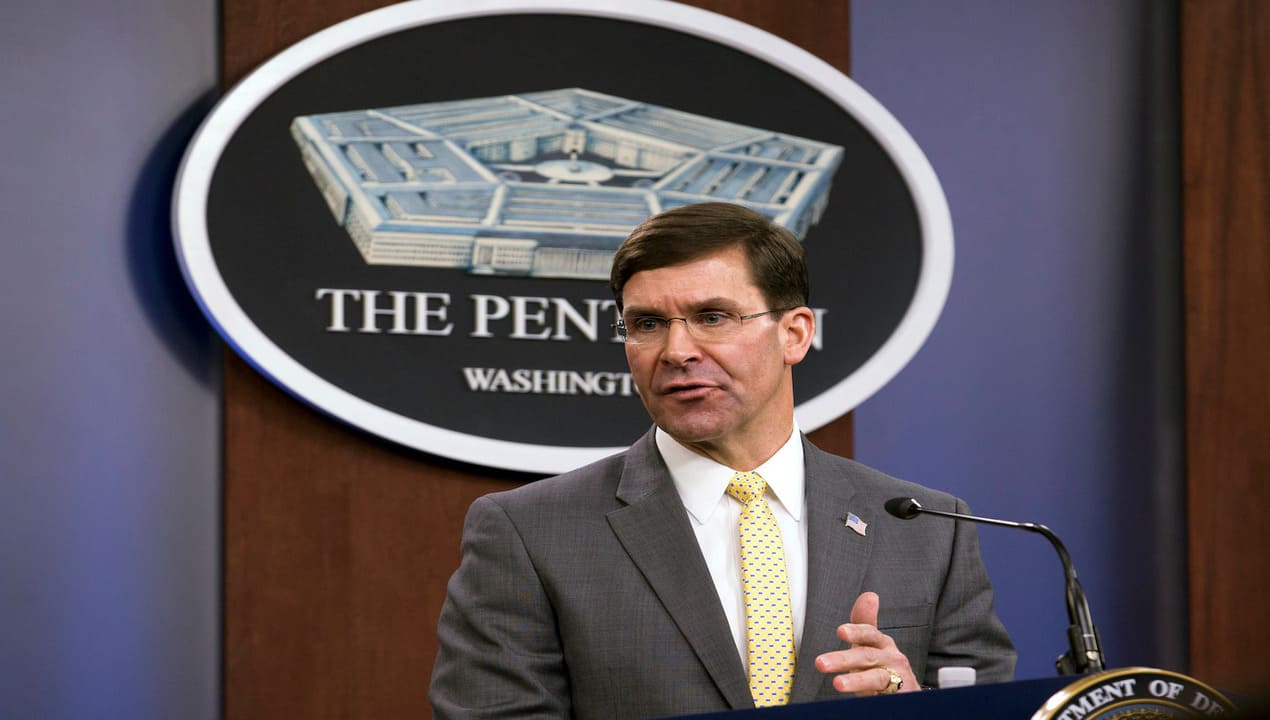
Independent Report – Democrats Criticize Pentagon as lawmakers have voiced strong criticism following reports that the Navy and Air Force are considering halting nearly completed software projects worth more than $800 million. Officials are reportedly aiming to redirect contracts to companies such as Salesforce and Palantir, raising concerns about wasted resources and unnecessary delays.
Democrats Criticize Pentagon as Senator Tim Kaine emphasized that the department has yet to provide sufficient justification for stopping projects that have already received significant taxpayer investment. He suggested that the timing of the announcement, coming shortly after Palantir CEO Alex Karp addressed a major Republican donor event, raises questions about potential conflicts of interest.
Palantir’s involvement in political events has been under scrutiny. Earlier this month, reports indicated that Karp attended House Speaker Mike Johnson’s annual donor retreat in Jackson Hole, Wyoming. Critics argue that the Pentagon’s shift in contracts may be influenced by these political connections rather than operational needs.
Also Read : Measles Surge in North America, 18 Dead, PAHO Warns
When contacted for comment, representatives from the Pentagon and Air Force did not respond, while the Navy declined to provide a statement. Officials from the Trump administration have maintained that their goal is to improve the efficiency of the defense contracting process. However, the recent actions have fueled bipartisan concern over wasteful spending within the Department of Defense.
Democratic lawmakers argue that halting nearly finished projects represents a clear misuse of taxpayer money. Representative Maggie Goodlander, a Democrat serving on the House Armed Services Committee and a former intelligence officer in the Navy Reserve, described the move as both wasteful and disrespectful to service members. She emphasized that redirecting nearly completed work to other contractors undermines efforts to manage resources responsibly and efficiently.
The controversy also reflects broader concerns over waste in defense spending under the Trump administration. While former President Trump campaigned on a platform of eliminating government waste and abuse, critics note that some of his actions have complicated oversight efforts. The Department of Government Efficiency, created to manage these efforts, lists over $14 billion in canceled Defense Department contracts. Yet, administrative decisions, including the firing of the Pentagon’s inspector general and executive orders favoring rapid acquisition and risk-taking, have drawn criticism for potentially undermining accountability.
Representative Salud Carbajal, another Democrat on the House Armed Services Committee, described the Pentagon’s recent behavior as part of a broader pattern of mismanagement. Carbajal pointed to extravagant military parades and unnecessary troop deployments as examples of spending that lacks justification, reinforcing his concerns about responsible use of taxpayer funds.
Jill Tokuda, also a Democratic member of the committee, echoed Carbajal’s criticisms. She highlighted the risks associated with removing oversight mechanisms, arguing that safeguards are essential for ensuring accountability in military spending. Tokuda noted that some halted projects included critical military pay systems, which were nearing implementation and poised to pass audits. She expressed concern that redirecting funds could allow well-connected companies to benefit at the expense of taxpayers and service members.
The debate over these projects highlights ongoing tension between efficiency, accountability, and political influence in the Pentagon’s contracting process. Democrats argue that halting projects already underway is both financially irresponsible and potentially corrupt. They stress that taxpayer money should be spent prudently and that defense acquisitions require careful oversight to prevent waste.
In conclusion, the proposed cancellation of these software projects has sparked strong opposition among Democratic lawmakers. They warn that redirecting contracts to politically connected companies undermines trust in government spending and fails to respect the investment already made in nearly completed projects. As the Pentagon considers the next steps, lawmakers continue to press for transparency, accountability, and responsible management of taxpayer funds in defense acquisitions.
Also Read : Trump and Putin Hold 3-Hour Alaska Summit, No Deal on Ukraine